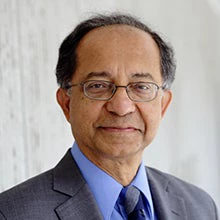For a long time, as a college professor and then as the chief economic adviser to the Indian government, I was a happy user of the World Bank’s data on global poverty, tracking trends and analyzing cross-country patterns. I seldom paused to think about how those numbers were computed. Then, three years ago, I joined the World Bank as its Chief Economist. It was like a customer, happily ordering dinner in a favorite restaurant, suddenly being asked to go into the kitchen and prepare the meal.
Being in the business of measuring poverty is a challenge for the World Bank. If poverty declines, critics accuse us of trying to showcase our success. If it rises, they say we are ensuring that we stay in business. And if it stays the same, they accuse us of trying to avoid these two charges.
Fortunately, there is something liberating in knowing that you will be criticized for any outcome. Still, as our team set about defining the global poverty line this year (and thus the incidence of poverty), I was acutely aware of the note of caution from Angus Deaton, this year’s Nobel laureate in economics: “I am not sure it is wise for the World Bank to commit itself so much to this project...
(Originally posted on Project Syndicate. See full post here)


Join the Conversation